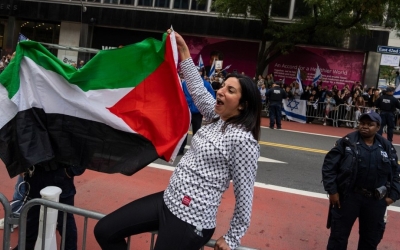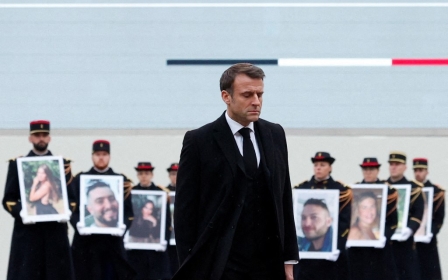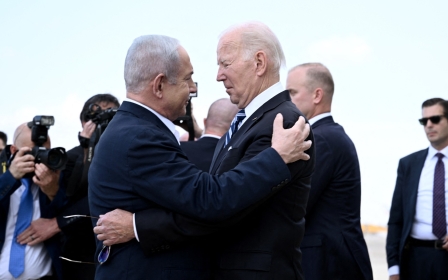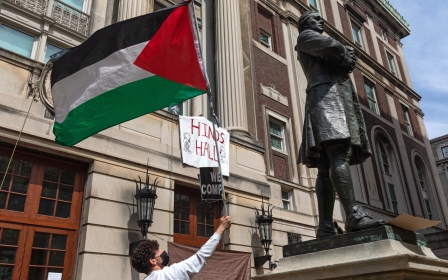UK: Protests at Tate Modern after billionaire Blavatnik 'cancelled news show for Netanyahu'
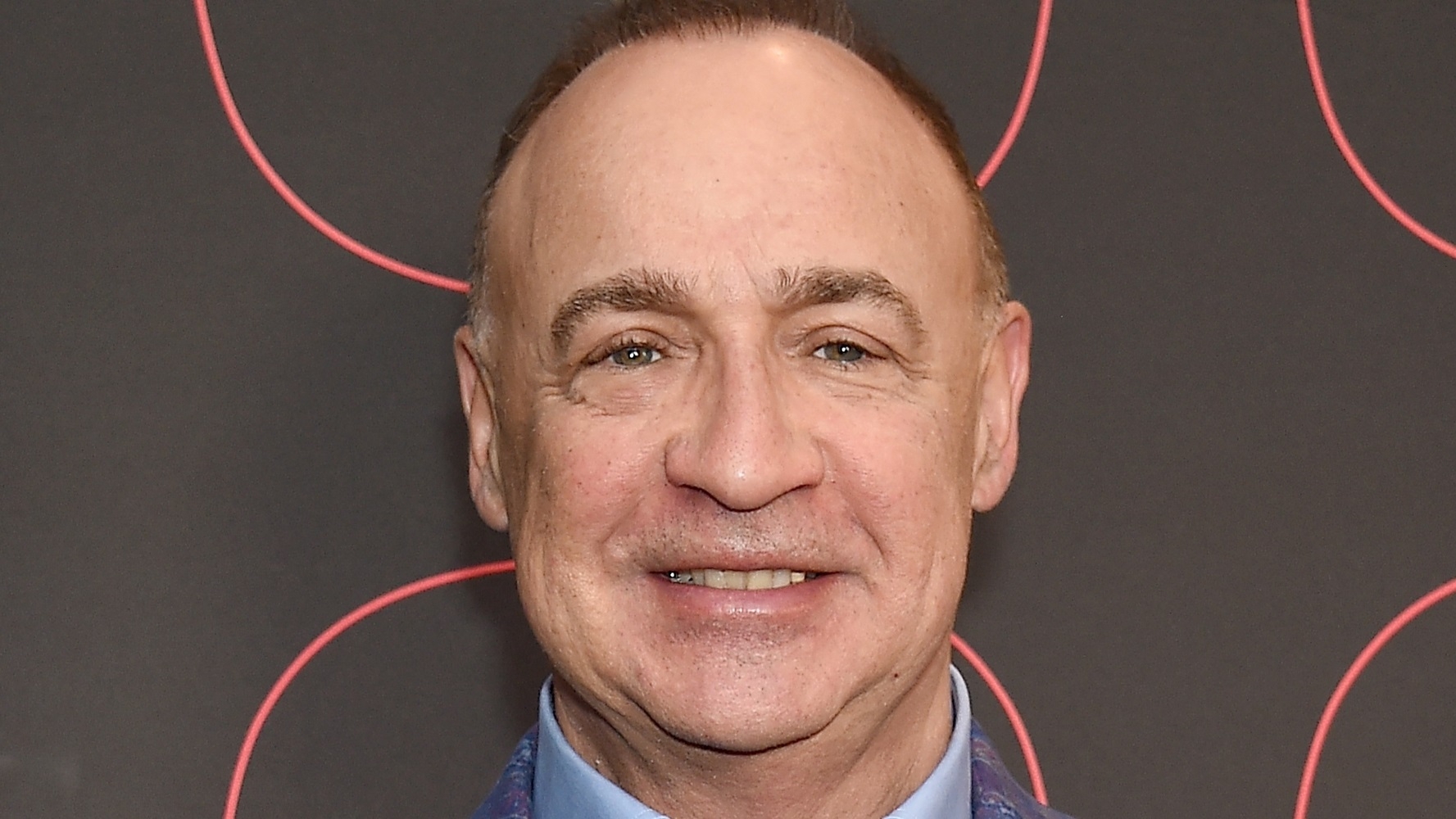
A group of Israelis have held a protest outside the Tate Modern art gallery in London over billionaire art patron Len Blavatnik's alleged involvement in the cancellation of an Israeli news programme critical of Prime Minister Benjamin Netanyahu.
Born in Ukraine when it was a part of the Soviet Union, Blavatnik is the UK's second-richest man, according to the Sunday Times, with a net worth close to £30bn ($38.8bn).
An ally of Netanyahu, Blavatnik became the majority shareholder in Israel's Channel 13 in 2019.
Protester anger centres around the cancellation of the programme Warzone, produced by Netanyahu critic Raviv Drucker, in a recent overhaul at the channel.
Those at the Tate Modern on Sunday accused Blavatnik of censoring Drucker and held up banners, which read: "Blavatnik, don't mess with freedom of the press!"
New MEE newsletter: Jerusalem Dispatch
Sign up to get the latest insights and analysis on Israel-Palestine, alongside Turkey Unpacked and other MEE newsletters
Blavatnik is a philanthropist who donates to cultural institutions across the UK. Beneficiaries of his donations include the British Library, the National Portrait Gallery and the Tate Modern, amongst others.
The Tate Modern's Blavatnik Building is named after the billionaire, who made his fortune in the metal and oil industry following the collapse of the Soviet Union.
Of Jewish descent, Blavatnik is a strong supporter of Israel and its hard-right prime minister.
In May, the Washington Post named Blavatnik as part of a group of 100 business leaders in a WhatsApp group aimed at changing narratives regarding Israel.
In April, members of the chat, including Blavatnik, held a Zoom call with New York City Mayor Eric Adams, at a time when a pro-Palestinian encampment was taking place at Columbia University in the city.
During the call, attendees spoke about making political donations to Adams, and about how the business leaders could urge Columbia's president and trustees to permit the mayor to send police on campus.
Some members of the chat offered to pay for private investigators to help police during the protests.
According to the Washington Post, a member of the group wrote on the chat that such an offer had been accepted by Adams. New York's police denied using private investigators to manage the protests.
On 1 May, dozens of students were arrested as New York police officers wearing riot gear entered the main campus and broke up the encampment.
Middle East Eye delivers independent and unrivalled coverage and analysis of the Middle East, North Africa and beyond. To learn more about republishing this content and the associated fees, please fill out this form. More about MEE can be found here.


